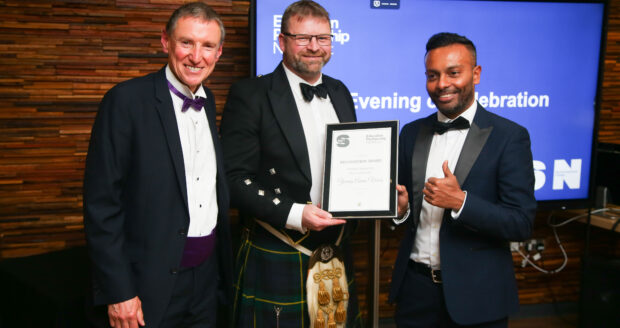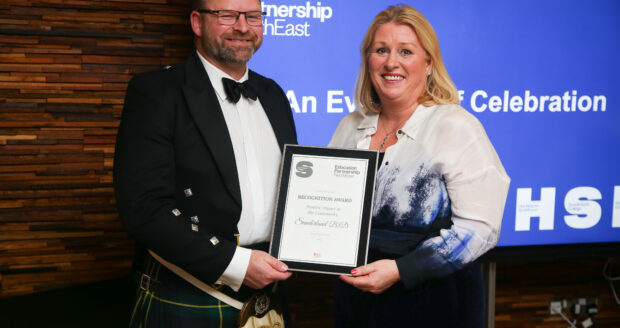Sunderland College is supporting ambitious plans to drive down emissions and make Sunderland a carbon neutral city by 2040.
A range of people and organisations have all helped shape a Low Carbon Framework, which sets out ways in which we can all do our bit to reduce our carbon footprint, and play a part in the fight to limit the global temperature rise to below 1.5°C.
Young people across the city identified the environment and climate change as their number one priority in the Young People’s State of the City Debate held in November 2019, and the council declared a Climate Emergency earlier that year in March 2019.
In a meeting in December the City Board, which includes representatives from across the city, agreed to adopted the Low Carbon Framework through the 2030 Shadow Board which brings together organisations including the Council, Together for Children, Sunderland Youth Parliament, South Tyneside and Sunderland’s NHS Foundation Trust, NHS Sunderland Clinical Commissioning Group, the University of Sunderland, Sunderland College, Gentoo as well as the Police, Fire Service, Transport for the North, and business partners through the North East England Chamber of Commerce, together with councillors representing each of the political groups on the Council.
The partnership is focused on developing a range of practical ways in which Sunderland can become greener and recognises that we all have a role to play. Its ambition is that, through joint working with residents and businesses, they can influence behaviour to tackle carbon emissions and encourage everyone to become more sustainable one small step at a time.
Sunderland City Council has moved quickly to develop its own detailed Action Plan – something that will be reviewed by its Cabinet in January when Cabinet endorses the city-wide Framework – which will set out the actions that the council will take. Sunderland City Council is aiming to be a carbon neutral organisation by 2030.
Ellen Thinnesen OBE, CEO of Education Partnership North East, said: “Over the past year we have been very busy accelerating improvements to our carbon footprint and ensuring the college’s operations support a growing green agenda.
“We are delighted to support this ambitious new Low Carbon Framework and intend to use it to raise awareness and bring about further positive change right across our North East college community.”
In papers that will go before its Cabinet for review in January, Sunderland City Council outlines a range of interventions that the Framework has developed in order to achieve a low carbon economy and encourage people to live, work and play in a way that enables Sunderland to become a more sustainable city.
The Cabinet will also review, and is expected to adopt, the organisation’s own Action Plan. Partners across the city are also developing their own Action Plans. Progress towards the city’s carbon reduction target will be monitored with plans for an annual progress report to be produced.
Councillor Graeme Miller, leader of Sunderland City Council and chair of the 2030 Shadow Board, said: “The fight to save the planet is a global challenge, but it’s one that very much begins at home with each of us taking individual responsibility for the way we live and the impact our own choices and actions have on our carbon reduction.
“As a local authority, we can play a significant role in supporting our residents to live greener lives – to make a positive difference to the city’s overall sustainability and address this challenge head on, and by working with partners to make this pledge as a city, we are taking a significant step towards carbon neutrality.
“There is much to do, but in adopting a Framework to guide our efforts and individual action plans, I am confident we can achieve our ambitious targets. Sunderland people always come together when there is a crisis – and this is a very real crisis. It’s one that requires a collective and sustained effort. With our own civic leadership on this issue, and the backing of businesses and people, we can make a real difference.”
Importantly, the partnership is engaging the next generation to help take forward the Framework, something it hopes will ensure that the effort is owned, and in many ways led, by young people who will ultimately live in a more sustainable city as a result.
Simon Marshall, director of education at Together for Children and 2030 Shadow Board member, said: “This Framework is about the next generation. It’s about driving change and empowering young people to be the focus of this change. We want to encourage leadership and foster a sense of ownership amongst young people, ensuring they have a strong voice throughout and are the leading force behind this agenda.
“We’re looking forward to continuing to work with partners, including engaging with the city’s schools, in 2021 and onwards to enable them to play a leading role in this effort.”
Test

Young Asian Voices (YAV) Sunderland has received a special Recognition Award for their ‘Positive Impact in the Community’ at an inspiring VIP even...
December 16, 2022

Sunderland’s Business Improvement District (BID) received a special Recognition Award for its ‘Positive Impact within the Community’
December 15, 2022

98% of our students progress to a positive destination
(*Destination data for Sunderland College students aged 16-18, academic year 2017/18).

Our achievement rates are well above the national average.

We are the College of the Year.
(*Top college nationally for BTECs, Pearson 2019)

100% of our HND and HNC students progressed to employment or further study.
(*Destination data, academic year 2016/17, HNC 19+)

We have recently invested £50 million in our facilities.